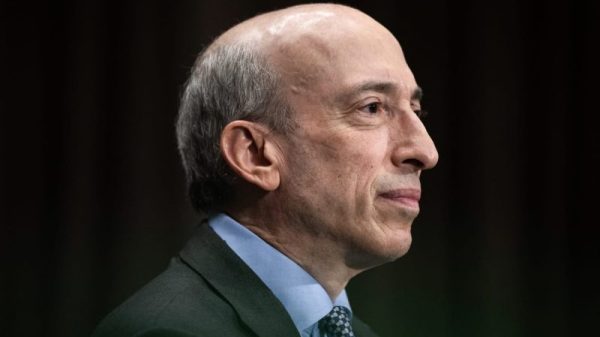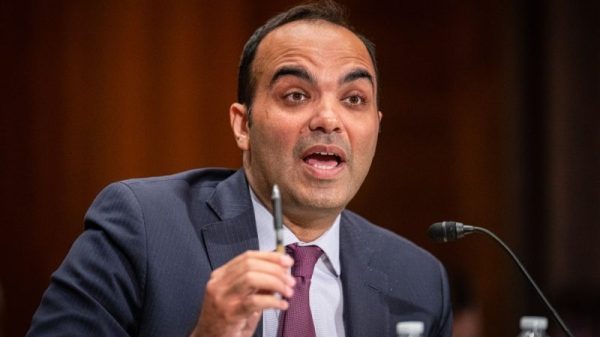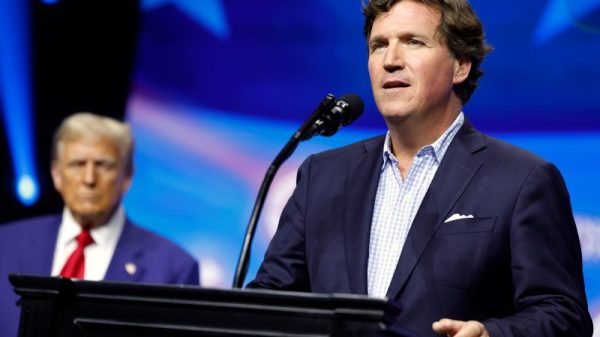As Republicans were resisting Rep. Jim Jordan’s attempt at becoming speaker last week, a talking point emerged among some of his boosters. The House needed to get back to business, stat. It was too important. So just sign on the dotted line, install the Freedom Caucus guy and get it over with, the argument effectively went.
“We need to get to work for the American people. We need to do what we said we were going to do,” Jordan (R-Ohio) himself said Friday, adding that “we can’t open the House until we get a speaker.”
That argument didn’t prove compelling. And not only did Republicans proceed to kill off Jordan’s speaker bid, but they then decided it was okay to leave town for a few days — the urgency of the country’s business apparently having suddenly subsided and taken a back seat to the desire to go home for the weekend.
But even that exercise presupposed something that we probably shouldn’t take for granted — that Republicans actually feel a sense of urgency.
What if — and bear with us — certain Republicans don’t really care whether there is a prolonged period without a speaker and are willing to leverage that for what they want? If even five Republicans have internalized that posture, it could prove a hugely significant hurdle, given the winner needs 217 votes and there are only 221 House Republicans.
New polling suggests this kind of sentiment is embraced by a significant number of Republican voters.
A Suffolk University poll gave people two options:
“Congress needs to elect a Speaker as soon as possible to fund immediate needs like support for Israel, Ukraine, and to prevent a government shutdown in November,” or …“I don’t care if Congress elects a Speaker. Every day that goes by without a Speaker means that Congress can’t waste more of our tax dollars.”
Americans chose the former, speaker-now option by a very wide margin, 67 percent to 25 percent. Democrats preferred it 86-10.
But among Republicans, it’s not nearly so overwhelming. Fewer than 6 in 10 (57 percent) cited the urgent need for a speaker, but 34 percent chose the latter option.
And the lack of urgency is even more pronounced when you drill down a little further. For instance, 40 percent of people backing Donald Trump in the Republican presidential primary said they don’t care when Congress elects a speaker, as did 43 percent of people who called the pro-Trump outlet Newsmax their most trusted media outlet.
This comes with some caveats. One is that these binary choices can push people who aren’t passionate toward an option they might not completely agree with. For instance, Republicans who believe the United States shouldn’t send aid to Ukraine might be turned off by the speaker-now option mentioning funding Ukraine as an “immediate need.”
But it’s not the only question where Republicans are clearly less insistent upon the government functioning as usual. The same poll shows a majority of Republicans — 55 percent — prefer standing firm in upcoming negotiations and shutting down the government, if need be, to obtain spending cuts. Just 37 percent said they would prefer negotiating a compromise to avert a shutdown.
Again, the binary-choice caveat applies. But all of it speaks to the willingness of a significant number of Republicans to use brinkmanship to get what they want and not caring as much about the potential costs of hamstringing the government in the process.
In the case of those who don’t feel urgency to elect a speaker now, it’s not close to a majority. But one of the unhelpful realities for today’s House GOP leadership is that there are a handful of members who are content to cater to a small but substantial — and vocal — portion of the party. If 4 in 10 Trump supporters tend toward a particular view, there’s an audience for it, a constituency to lean on and TV appearances to be booked.
At the very least, these members will go right on believing that the potential costs of their ostensibly principled push to gain a like-minded speaker aren’t that severe. And after more than a decade of Republicans pushing toward shutdowns and potential debt ceiling breaches, that probably shouldn’t be too surprising.







































